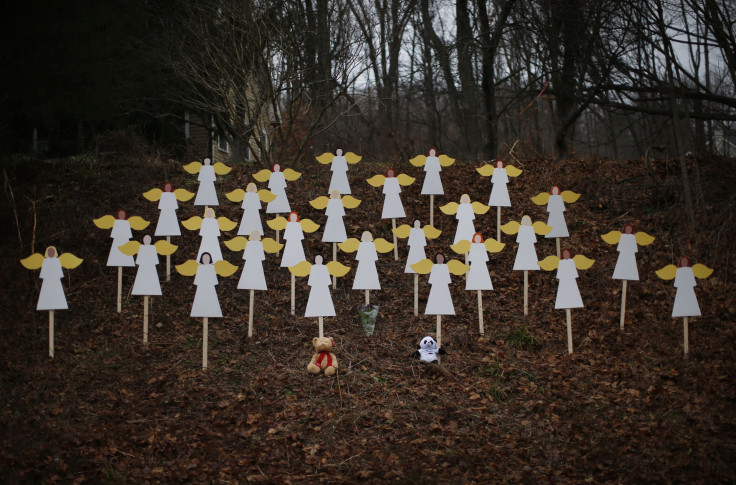Gun Control News: Obama Looks To Sandy Hook Parents To Help Pass Senate Bill

If a president who loves campaigning has a gun control bill facing opposition in Congress, what should he do? Start a campaign.
President Barack Obama will attempt to appeal to the emotions of Republican lawmakers -- and by extent the entire U.S. -- this week, to prevent a filibuster of the Senate’s gun control bill. He will return to Washington, D.C., from Connecticut Monday, bringing with him 11 parents of children shot to death at the Sandy Hook Elementary School last December.
The victims’ relatives will be present when Obama delivers a speech to lawmakers, pleading with them to pass legislation he believes will curb gun violence. The parents will also lobby Congress for a simple up-or-down vote on the measure.
The White House has said lawmakers have an obligation to vote on each of the gun control proposals.
A young gunman snuffed out the lives of 20 children and six adults at the school on Dec. 14 last year after killing his own mother. Following the incident, there has been a renewed debate over gun control in America that has Democrats and Republicans on opposite sides.
“Shame on us if we’ve forgotten,” Obama said in a speech last month. “I haven’t forgotten those kids. Shame on us if we’ve forgotten.”
The Senate’s gun control bill could extend background checks, implement harsher penalties for straw purchasers and improve school safety. Sen. Dianne Feinstein’s assault weapons ban will be added as an amendment but has less support than the other measures. Whether the bill will make it through the Senate is in question as a trio of Republican senators who originally planned to filibuster the Senate Democrats’ measure has grown to approximately a dozen.
“And it is the obligation of the members of Congress who stood and applauded when the president called on them to vote on these issues to live up to that applause when the cameras were on, and not to take the less courageous route by using procedural measures to block a vote,” White House Press Secretary Jay Carney said in a briefing on Monday. “Imagine what would they say to the families of the victims of Newtown about why a certain measure never came to a vote because they filibustered it or used other procedural measures to block it. That would certainly be inappropriate.”
Some top Republicans in the Senate, like Arizona’s John McCain, don't support a filibuster.
“I don't understand it,” he said Sunday on CBS’ “Face the Nation.” “The purpose of the United States Senate is to debate and to vote and to let the people know where we stand. (...) I don't understand it. What are we afraid of?
“Why would we not want, if this issue is as important as all of us think it is, why not take it on the world’s greatest deliberative -- that’s the greatest exaggeration in history, by the way -- but, you know, why not take it up an amendment and debate,” he added. “The American people will profit from it. I do not understand why United States senators want to block debate when the leader has said that we can have amendments."
Since the Sandy Hook shooting, a number of states have passed strict legislation making it harder for guns to fall into the wrong hands. Connecticut Gov. Dan Malloy just signed a comprehensive gun control law, requiring background checks, expanding the state’s assault weapons ban to more than 100 firearms, and the sale of magazines that can hold more than 10 rounds.
© Copyright IBTimes 2024. All rights reserved.












